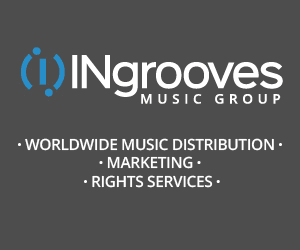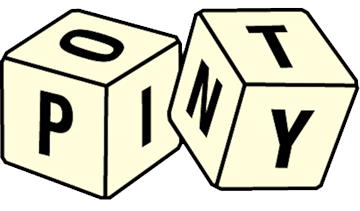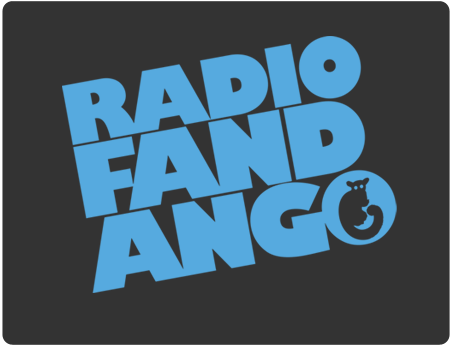A digital music distributor's function is to serve as an intermediary between artists (or labels) and online music retailers such as Spotify and iTunes. Their main asset is that they greatly simplify the digital release process by being able to distribute your music to a large number of outlets and streaming services. This saves you from having to deal with every single one of them individually, and subsequently helps you keep track of the otherwise greatly dispersed royalty distribution.
Another benefit of digital distributors is that most of them allow you to have access to valuable sales and demographic data concerning your music. This helps artists and labels keep track of how well their releases are doing, and gain insights into their listerner's characteristics, such as their home country, and when one of your songs are added to a streaming playlist.
In return for their services, digital distributors either ask for a one-off fee, or take a percentage of distribution income. The height of this percentage varies and usually depends on the specific type of services the distributor offers.
Picking one (DIY distributors)
There are a few key differences between digital distributors which can make choosing the right one a bit confusing. The most important difference, however, is the level and type of service a distributor provides. Here you can basically distinguish two types of distributors: one which caters to the DIY artist, and the other one which is specifically useful for labels. The DIY category contains distributors such as AWAL, Tunecore, and ReverbNation.
AWAL, a subsidiary of Kobalt Music Group, charges a relatively high 15% commission. This high rate can be explained by their promise of helping artists with marketing and promotion. What also distinguishes AWAL from its competitors is that it does not simply take on any artists. Instead artists or labels have to go through an application procedure and are subject to critical examination before they are admitted into the AWAL system.
Tunecore, on the other hand, takes on basically any new artist and does not require an application procedure. However, this also means that they do not invest in helping you promote your music. What they do provide is revenue advances to a select number of artists who have a proven track record of doing well on digital outlets.
In terms of costs, Tunecore does not take a commission but instead asks an annual fee in return for a membership.
Reverberation, similarly to Tunecore, does not take any commission. But unlike Tunecore or AWAL, they do not supply funding to artists who are showing signs of success on their platform. A specific strong point about this distributor is that it allows the artist to submit it's music to a database of potential interested parties, such as labels and advertising agencies.
Picking one (Label distributors)
It is important to understand the distinction between distributors who cater to the DIY and the ones who are specifically aimed at helping labels and more established artists. This is because the latter usually offers more services, but also is selective in its applicants. The most prominent names in the Label category are the Orchard, Ingrooves and Believe Digital
The Orchard usually works with more established artists and labels. One of its great benefits is that it also does physical distribution, and, being a subsidiary of Sony, has a global reach. Its service includes "marketing, advertising, sync licensing, video monetization, performance tights services and more" (The Orchard, 2019). Thus, the Orchard has a much more hands-on service model than the previous three examples. However, this also means that they do not take on any artist, and certain qualifications are recuired.
Ingrooves also incorporates a wide range of services which can be very useful, such as product management, promotion, synch licensing and rights management. With an extensive physical distribution option, it has a service offer which is quite similar to that of The Orchard. And, subsequently, only does partnerships with record labels or established artists.
Believe is the parent company of TuneCore, and involves "custom-made digital release strategies for artists & labels across all platforms increasing visibility", apart from offering the same services mentioned above. One major difference is that Believe is solely a digital company, and does not offer physical distribution services.
Welcome to the School Of Fandango
THIS is a new resource for new and emerging bands and solo artists with the aim of helping you get from your bedroom to playing your first gig to releasing your first record to building a team and an audience, and maybe one day having a hit!
Indeed, many new bands are perplexed about how it all works. How do I go from playing to 'un homme et un chien' (one man and a dog for you who can't speak French) on a wet and windy Tuesday night to headlining the pyramid stage at Glastonbury?
Well, we here at Fandango are not sure how you do that either, but we can help you get some of the way - point you in the right direction with some do's and don'ts, probably more don'ts than do's - coz making it in a band these days is a bit like rocket science, and there are rules, lots of rules - some spoken, some unspoken...so the school of fandango will endeavour to give you some handy hints to help you on your way...
Eventually this resource will searchable by subjects and put into seasons so you can skip to relevant bits depending where level you at... entry level, emerging, export-ready, established (we cater for all) - but to get it up and running we will start with a blog on this and a blog on that just to get it out there and then we'll tidy it up coz in some ways too much planning takes the fun out of it and we like to go off on tangents... the scenic route if you like...but bear with us and we'll get there eventually... and if we are really clever we may embellish with audio and video bells and whistles...
So if you are in a band, or want to be in a band and you have some songs in your heart, or lyrics on your lips, or riffs in your fingers or beats in your toes well this might be for you...
From the bedroom to Brixton maybe.
Forthcoming School Of Fandango blogs...
Demos do's and Don'ts - What makes a good/bad demo?
How important is a band name?
Recommended studios/rehearsal rooms etc
The 4 D's - Drive, Dedication, Determination, Desire
Would you sell your nan down the river for a hit?
Bands need to be a brand not just a band
How important are press shots?
Is a bands performance on socials now more important than their performance on stage?
Is an EPK all you need?
Stuff you can't not do. They might not notice if you do it but they will if you don't
Recommended pluggers / press companies etc
You need gigs to build audience V too many gigs to exhaust the audience
Becoming tight - putting on a show rather than putting on a gig
Ticketed v free gigs
The importance of sequencing an album/set list
Do and Don'ts of the soundcheck
Recommended venues, promoters, live agents
The Journey Of The Master - What is the process of releasing an album?
Do you need a label?
What is Digital Distribution
Assets needed before the release date
How important is the artwork?
Which track is the single?
What is album dumping?
What the blazes is the difference between an impact date and a release date?
Exclusive premieres (when / how / why)
Bob the builder - building repertoire, audience, confidence, stagecraft
Recommended labels, distributors, publishers
What does a distributor do that the label can't?
What does a label do that the distributor can't?
ISRC, PRS, PPL, MCPS - what are these confusing things?
And when to join? And what is metadata?
We also provide 1-2-1 Consultancies, quarterly webinars and bespoke labels service
To find out more please visit the services section here














